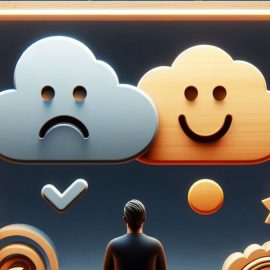

This article is an excerpt from the Shortform book guide to "Attached" by Amir Levine and Rachel Heller. Shortform has the world's best summaries and analyses of books you should be reading.
Like this article? Sign up for a free trial here .
What are the origins of attachment psychology? Why do many Westerners believe that being emotionally self-sufficient is so important? How can this outdated ideology be harmful?
Back in the 1920s, parenting books warned parents not to coddle their children too much or they would grow up to be reliant on others. This is where attachment psychology began and it only got worse from there.
Continue reading to learn about the origins of attachment psychology and how early beliefs about attachment are harmful.
The Origins of Attachment Psychology
Attachment psychology started with the Western belief that we should be emotionally self-sufficient has its roots in 20th-century parenting books, which warned against coddling children or smothering them with too much love. As far back as the 1920s, experts warned parents that if they wanted their children to grow up self-reliant and fearless, they should dole out affection sparingly.
The tide turned in the 1960s when psychologists Mary Ainsworth and John Bowlby published studies that proved the importance of parent-child bonding. By studying infants raised in orphanages and institutions, they showed that babies and young children are not attached to their parents just for food and shelter. According to their research, children raised without a parent or an attachment figure—but with adequate food and shelter—had a much higher chance of stunted physical, emotional, and intellectual development.
Credited as the founders of attachment theory, Ainsworth and Bowlby also argued that humans have attachment needs throughout their entire lives, not just as children. Later research has continued to support this idea, with a slight twist: Unlike babies, adults benefit from having a supportive, nurturing relationship even when their “supporter” isn’t physically available to them. Adults can thrive with just the knowledge that someone is there for them psychologically and emotionally.
Self-Help That Hurts, Not Helps
Despite this research, many adults still subscribe to the outdated ideology that they shouldn’t rely too much on their partners. Our society’s overarching message is to strive for independence in all things, even our relationships. We’re told that what’s most important is knowing how to satisfy our own needs and self-soothe.
This is partly due to the codependency myth, which gained momentum in the late 20th century. If you’re involved in a relationship with someone who suffers from substance abuse, self-reliance, independence, and strong boundaries may be your salvation. You don’t want to depend on a partner with addiction problems, and you don’t want to assist them in their addiction.
But while codependency theory makes good sense for relationships in which one party is an addict, it’s counterproductive when applied to other kinds of relationships. The notion of maintaining strict boundaries with our romantic partner defies human biology and brain wiring.
Reality Check: We Are Wired for Attachment
Not only is your mental health affected by the quality of your partnership, your physical health is as well. Studies have proven that being in proximity to your romantic partner changes your blood pressure, heart rate, breathing, and hormone levels. If you’re in a relationship, you can’t choose to be independent because biologically, you’re not.
The research: At the University of Virginia, Dr. James Coan proved that relationships affect our emotions. In one study, he told married women that they would receive a mild electrical shock while he scanned their brains in an MRI machine. The women were divided into three groups: those who had to undergo the scan and shock alone, those who could hold a stranger’s hand during the experiment, and those who could hold their husband’s hand during the experiment. Not surprisingly, the latter group experienced much less stress than the other two groups. Their brain scans showed almost no activity in the hypothalamus, the region of the brain that registers stress. The hand-holding husbands were “helping” the women on a physiological level.
Researchers at the University of Toronto found more evidence of our physiological connection to our partners. Their studies showed a correlation between blood pressure and marital happiness—or discord. Study participants with high blood pressure who considered their marriages to be happy and satisfying actually experienced lower blood pressure when their spouses were present. The opposite was also true: Participants with unhappy marriages experienced elevated blood pressure when their spouses were present.
Psychologist John Bowlby posited that this “merging” of physiological responses is an evolutionary adaptation. After all, if a predator is chasing you, it’s safer to have someone near you who senses the threat just like you do and will help respond to the emergency.
The conclusion? Romantic attachments don’t just happen in our heads and hearts. Our whole body responds.

———End of Preview———
Like what you just read? Read the rest of the world's best book summary and analysis of Amir Levine and Rachel Heller's "Attached" at Shortform .
Here's what you'll find in our full Attached summary :
- Why your partner behaves the way they do
- How your attachment style affects your relationship
- How to distance yourself from unhealthy relationships






